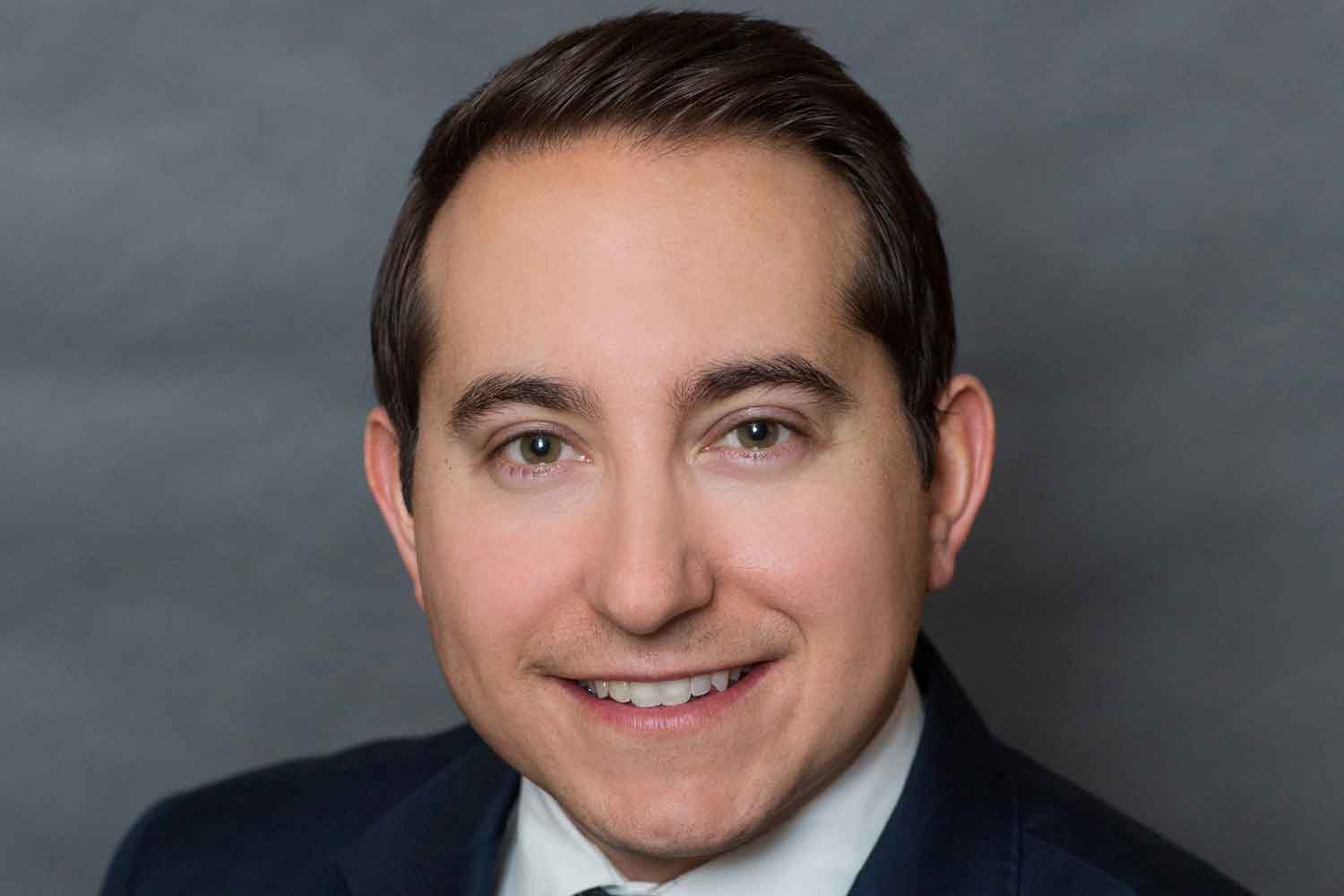
Turning Point Brands is embracing next-generation tobacco and alternative products by taking calculated risks.
By Timothy S. Donahue
It’s hard to argue the success of Turning Point Brands (TPB). In business since 1988, during the past decade, the company has been turning the typical tobacco business model on its head. It is involved in almost all aspects of the industry, generating nearly $450 million in sales every year. From its iconic brands like Zig-Zag to its more recent investments in the growing legal cannabis industry, TPB is turning heads.
Headquartered in Louisville, Kentucky, USA, TPB’s business includes three operating segments. Its main line of revenue comes from its “smoking” segment, which includes the rights to the Zig-Zag brand in the U.S. and Canada, according to Scott R. Grossman, TPB’s vice president of corporate development. Zig-Zag is one of the oldest, most recognized “other tobacco products” (OTP) and cannabis accessory brands. “Founded over 150 years ago, Zig-Zag holds the No. 1 share of both rolling papers and wraps in North America, and its products can be found in more than 200,000 retail outlets,” says Grossman. “Given that Zig-Zag generates roughly 40 percent of TPB’s revenue and a majority of our operating income, the brand and its growth initiatives are a major focus for us.”
TPB’s second segment is “smokeless,” which is predominantly the Stoker’s brand, a leading player in the moist snuff tobacco and chewing tobacco markets. The company also owns the Beech-Nut brand and a diverse collection of other chewing tobacco products. Another compelling segment of the TPB operation is its new generation of products (NewGen), which covers the company’s electronic nicotine-delivery system (ENDS) and cannabis brands.
NewGen includes an assortment of brands serving multiple industry segments, such as TPB’s business-to-business (Vapor Beast) and business-to-consumer (International Vapor Group) distribution platforms and its new product engine, Nu-X Ventures. The company has online platforms under brand names such as VaporFi, South Beach Smoke and DirectVapor. TPB also owns the e-liquid brand Solace and within its NewGen segment includes recent minority investments in the emerging cannabinoid space, including brands such as Old Pal, Dosist, Docklight and Wild Hemp.
TPB was one of the first traditional tobacco companies to publicly announce its foray into the legal cannabis market. That decision came under the leadership of TPB’s former president and CEO, Larry Wexler, who retired from the company and was succeeded by Yavor Efremov on Jan. 11. “Larry took the company public in 2016 as an OTP business, and over the next five years, he successfully drove significant initiatives to drive value, including the investment in new talent to drive TPB forward,” says Grossman. “We’ve been strategically focused on introducing new products to serve both B2B and B2C customers across on-premise retail and online channels.”

Bump in the Road
Being a business with major assets in ENDS comes with challenges. TPB was one of the first major companies to receive a marketing denial order (MDO) from the U.S. Food and Drug Administration after the agency’s Sept. 9, 2021, deadline to decide on premarket tobacco product applications (PMTAs). Convinced that the FDA’s decision was unjustified, TPB immediately filed a legal challenge. Before the lawsuit made its way through the courts, the FDA rescinded the MDO it issued to TPB. The term “Fatal Flaw” was used by the FDA for PMTA submissions that lacked certain studies. The term has been at the center of nearly all lawsuits filed against the FDA for its handling of the PMTA process.
“The Fatal Flaw standard is obviously one that departs from the pre-September 2020 guidance. In fact, it’s in direct conflict with that guidance. It’s helpful that [our MDO] was rescinded and that the agency admitted it had not reviewed certain [TPB] studies,” explains Paul Blair, TPB’s vice president of government affairs, adding that TPB made the decision to file suit because there was information that the regulatory agency overlooked in its review process. TPB wasn’t unique in that respect; however, the agency didn’t look at specific study data for several businesses.
“[The rescission] is an important recognition that our denial was not related to nitpicking over data. The science we submitted about transitioning combustible cigarette consumers to our products in particular … It was an oversight. And that’s helpful not only as we try to navigate the process moving forward but also because it doesn’t seem it was an attack on the body of our application generally,” explains Blair. “We maintain that we provided data that is sufficient for the agency to authorize the marketing of our PMTAs. It’s fair to say, though, there’s not a publicly announced standard for the approval process, whether it’s for open system products, closed system products, flavors and, honestly, even tobacco and traditional flavored products.”
That’s what Blair believes the FDA is doing now; the agency is probably reviewing its communications plan on how to reassess the PMTA process and come to some conclusions on deciding on a standard for authorizing products. Traditionally, the FDA would engage in good faith conversations with businesses trying to get products approved and offer some clarity on what information the agency needs. According to critics, the FDA’s Fatal Flaw analysis for ENDS products proved this isn’t the case anymore.

Embracing Change
Unlike most traditional tobacco companies, TPB isn’t shy about its cannabis investments. The company’s management team and its board have embraced legalization, according to Grossman. Currently, 37 U.S. states have legalized medical cannabis and 18 have approved it for recreational use. During the past few years, the company has invested in several cannabis operations. In 2021, TPB completed an $8 million strategic investment in Old Pal Holding Co., a cannabis lifestyle brand, and an $8.7 million strategic investment in Docklight Brands, a consumer products company led by its anchor brands Marley Natural and Marley CBD. In 2020, TPB entered into a long-term distribution and profit-sharing arrangement with Wild Hempettes, the Texas-based manufacturer of Wild Hemp Hempettes brand smokable CBD, and made a $15 million strategic investment in the global cannabinoid company Dosist.
Grossman says that while every investment needs to be able to stand on its own, TPB’s strategy is focused on finding highly synergistic companies that strengthen the current TPB platform. Old Pal is a good example of how its strategy is being deployed—Old Pal sells roll-your-own (RYO) cannabis products with rolling papers inside the packaging. “Zig-Zag has historically been mainly focused on the convenience store channel, so this investment enables TPB to further accelerate growth in under-indexed stores such as dispensaries and head shops while supporting the growth of Old Pal,” says Grossman.
In August, TPB made its first move into the international market by increasing its stake in ReCreation Marketing, a Canadian distribution company with ties to Canada’s recreational cannabis culture. In December, ReCreation Marketing rebranded as Turning Point Brands Canada. “TPB Canada has a number of proprietary branded products in its portfolio, and we are exploring strategies to leverage that proven model and its portfolio to increase distribution within the U.S.,” says Grossman. “We are one of a select group of established companies—especially public companies—that are actively looking to deploy capital in the cannabinoid space. Historically, we’ve been predominately focused on brands given our expertise, but we’re exploring many verticals within the cannabinoid sector. Our pipeline is very healthy, but at the same time, we have to remain highly disciplined with how we spend our time and capital.”
It’s not just vaping and cannabis products in TPB’s future. In July, the company acquired certain cigar assets of Unitabac. The acquisition was for a portfolio of cigarillo products and all related intellectual property, including cigarillo non-tip, homogenized tobacco leaf, rolled leaf and natural leaf cigarillo products. “The cigar business is a $2.5 billion wholesale business in the United States. We’ve historically participated in that market, but we didn’t have the scale necessary to be really competitive. The Unitabac acquisition allows us to further extend into the cigar market,” says Grossman. “You’ll see a number of initiatives with that asset rolling out natural leaf products and other cigar assets, both under the Unitabac portfolio of brands as well as extending it to Zig-Zag.”

Facing Uncertainty
The FDA will soon have a new leader (Biden’s appointee, Robert Califf, had yet to be confirmed at press time). The FDA’s Center for Tobacco Products (CTP) will also have a new leader; its current director, Mitch Zeller, plans to retire in April. Blair says that the individuals in those positions will have a significant role to play in determining how the agency and CTP will work with stakeholders and communicate policies about how those regulations will go into effect. The FDA, he says, doesn’t have any previous experience regulating vaping products, so there is going to be a lot of action, reaction and learning along the way.
“It’s not as if Congress explicitly wrote how the approval or denial process might look. In fact, they didn’t write the details,” says Blair. “At least [the FDA is] thinking about the process, and they’re thinking about the consequences. But there is this opportunity beyond vapor product PMTAs in 2022 for a future generation of products to have some certainty because at the end of this, whether it’s because of litigation, because it’s further issued guidance, because it’s approvals or denials, there will be a pathway for companies and a better understanding of how the process works.”
Blair says that overcoming the challenges of getting a PMTA approved will be stepping stones toward determining how the company approaches the future regulation of other products, such as cannabis. He says there is a real opportunity for TPB to play a critical role in the future of cannabis regulation and policy. “I think our action is going to be guided by our business’ experience as a regulated tobacco business. There are other tobacco businesses that have cannabis interests or investments, but there aren’t many that are willing to publicly engage in the way that ours is as an advocate for legalization, as an advocate for appropriate regulations. There needs to be a balance of consumer protection with entrepreneurship and opportunities in the investment space.”
Grossman says the future of TPB is to align itself with the growth of the cannabinoid industry and possibly make more direct cannabis investments outside its current portfolio. “We are concentrated on trying to learn and execute on a variety of cannabinoid initiatives,” he says. “Although we’ve historically focused on brands, we are deeply embedded in the sector and are actively studying many verticals across value-added products and services, brands and distribution. We believe the U.S. cannabis market will exceed $50 billion over the next five to 10 years, which we clearly think will benefit TPB over the long term.”




